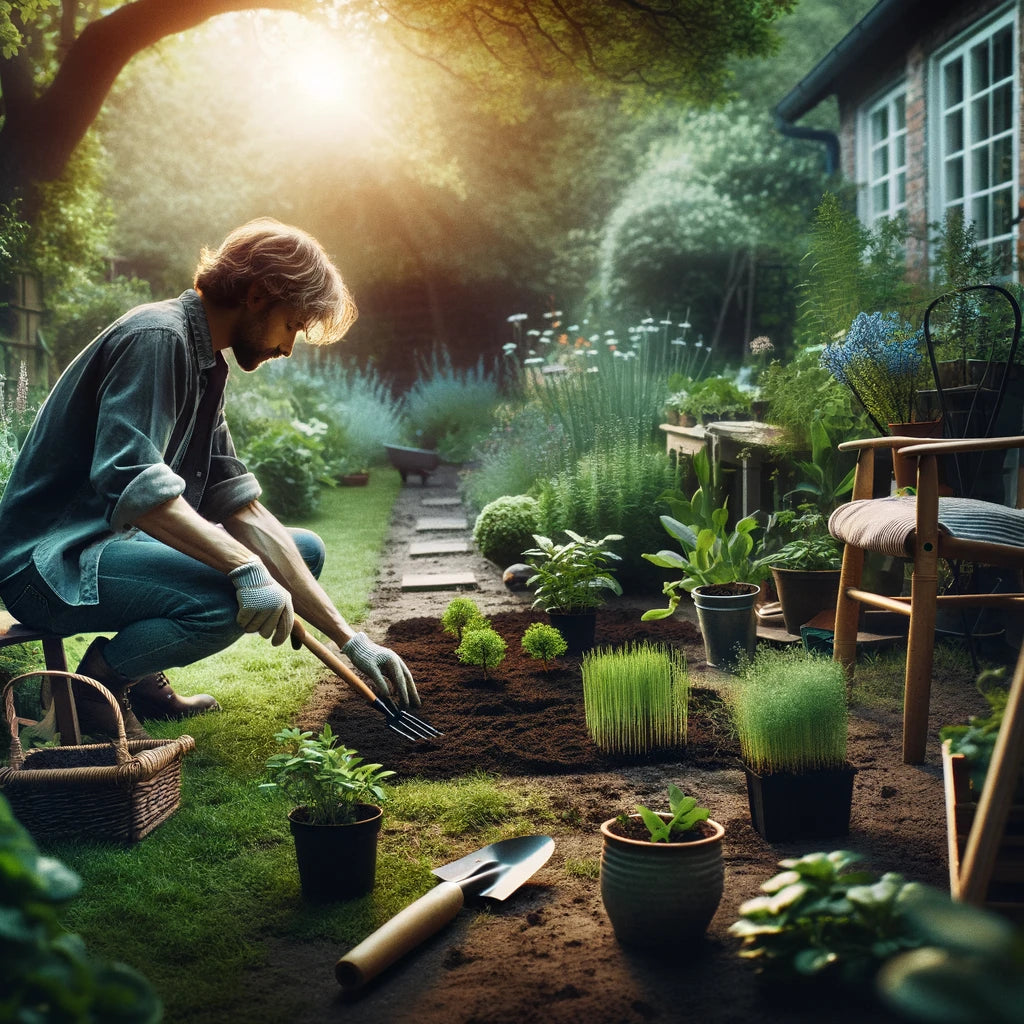
Farm and hobby are two words that people don’t often associate with each other. After all, the mere mention of farm will make you instantly conjure images of hard work and labor way before sunrise. Everyone has heard stories of hardships because of inclement weather destroying crops. And yes, things can go wrong, it will take some work and some time. However, even if farm life might not be easy, you can expect years of joy and satisfaction from having your own hobby farm. After all, you can choose the size and amount of work you can put into it.
Below are tips to help you start a hobby farm and also Enjoy it!
Research First, don't go in blind!!
Never walk blindly into farm life just because you see it as something cute, fun or even trendy. Any form of farming requires work, albeit it is a rewarding work as well. Decide on the type of hobby farm you want, what you prefer to reap for food and what will grow in what season in your area. Also get a picture book to spot signs of plant disease. Things like yellow leaves, holes in leaves, wilted plants and bug issues call all be fixed. You don't have to be a botanist, just get a good picture book on amazon. Here is a good amazon link to find these books - plant disease.
Soil
An important thing to know is your soil, is it nutritious, organic or does it have issues. If you can't figure that out, go get some healthy ground soil and start there. The good part is soil can become more and more nutritious as time goes on if you do it right. It's best to start a compost pile, it's also a good way to reduce the guilt of food waste and minimize the trash you are putting out. A compost pile is pretty much anything heathy you can imagine being sucked back into your new plants. Things like part of fruits or vegetables you don't use. Shucks of corn or the peals of a vegetable you didn't use. These decompose naturally and will become very nutritious to add to soil. But old spaghetti, plastics and stuff like that should not be added. To do a compost pile, pick an area outside you don't mind having this growing pile. Get a nice tarp to cover it and create a moist environment in the sun to help the decay. Get a small bin in the house and when you cook throw these items in there. When done just throw it on top of the growing compost mound. Also keep it moist, don't let it dry out to much. Before the planting season begins, mix this compost into the soil and give it some time to spread the nutrients into the soil.
Come Up with a Plan for the Season
After you figured out the type of hobby farm you wish to start, ask yourself some questions on what you wish to achieve from this. Are you after produce to eat or sell at the local flea market? How much harvest do you want every season? How much time can you take out of your day?
You should know the approximate size this plant will get when it produces fruit or vegetables. You don't want to plant it too close to another plant because it will suffocate it from water or sun.
Also what will grow in the winter, summer, fall or spring in your climate. What would sell or what do you enjoy eating. This may take some research, there is no reason to plant something that won't grow in the summer for instance. If summer crops is your plan.
Find a source for you seeds.
Not all seeds are the same, think about it as a genetic strain going back for ages. One seeds genetics can taste different, produce more crop and be less prone for disease.
One of the best methods is finding some fruit or vegetables from the organic market that knock your socks off. I remember finding a lady that sold black berries in Sonoma CA. Never in my many years have I tasted a black berry like this. It was almost a whole different plant then others. This is an example of a good thing to capitalize on, you too can now have this in your garden. It may take some tweaking overtime to get the same taste, because after all growing it has a big part too. But at least you are starting with genetics you know are great. Also, harvest the seeds from the vegetables and fruit you loved for years to come. One cool thing is those seeds will adjust the genetics slightly for your growing environment over time.
Learn how to care for plants.
Here is where some work comes in. Yes, for your best yields or even yields at all, you will need to do some work. A good way is using books like the disease ones we gave a link to. Not only spotting issues with bugs, wilting and other plant diseases. But how to crop and trim the plants correctly to produce more yield.
There are some wild tricks where just clipping some parts of the plant will double your yield. It can get very advanced, like mixing genetics, breaking the branches and removing certain bad areas of the plant.
Learn how to make natural tea remedies for bugs and diseases. One of the cool things is knowing what goes into your plants before you eat them. There are tonics you can make that are 100% natural and will remove bugs hurting your plants. Even give your plants more nutrients that you would normally use fertilizer for. There is something scary about adding store bought neon blue powder and eating those vegetables later. You don't need that if you learn some tea tonics.
Expect the Worst But Hope for the Best
Farms are subject to the bounty and risk from nature. A single bad frost could easily kill off all your crops. Animals can devour your garden and make it harvest-less. You need to be thick skinned to cope with your farming venture as things can go well or go south anytime. As you learn more, become a plant doctor with knowledge and overall stick with it. You will eventually be flawless year after year and produce great crop to eat without so many issues. It's also impressive to go to someone else's home and tell them what's wrong with their plants and how to fix it.
Make some Cash, Meet some people.
Every city and town has some sort of little organic market place on the weekends. You can set up a stand and make some cash, meet people and talk about growing. People love to hear about your growing methods or just chat about your crops. You will make friends, enjoy a day doing something and have cash at the end of the day. If you have some fruit or vegetable that stands out, like that blackberry lady. You will have people rushing to find you first thing in the morning to make sure they get some before it's sold out.
Go the Extra Distance
So, are you are ready to go the extra distance by now? Learn canning, jams, salsas and more. If you want to have some really cool fun with your crops grab a book with recipes. You can't exactly eat vegetables every meal and you will be surprised how much produce you get. Also it can go bad quick if you don't eat it soon. So, learn what you can make or do with it that will extend it or give a spin on it so you don't get tired of it. Same goes for selling it if your plan is to hit up the farmers markets.
Jams, canning, salsas, pesto, pickling and so much more can be done. Get a book, get creative and these methods will keep things exciting.
Here is a lesser known recipe that tastes great!
Cilantro Pesto Recipe:
Ingredients:
2 cups of cilantro leaves
2 cloves of garlic (you can use the center of a purple onion if you don't like garlic)
1/2 cup of fresh graded parmesan
1/2 cup of olive oil
1/3 cup of pine nuts or walnuts (walnuts are cheaper)
1/2 cup of olive oil
Combine 2 cups of cilantro leaves (not to many stems), garlic, pine nuts and a touch of olive oil. Give it a quick blend. Now slowly add the rest of your parmesan and olive oil together till you get a good consistency. The parmesan should go first and slowly finish it off with the olive oil till it has that nice pesto look and consistency. Salt to taste and and add a touch of pepper if you would like.
Love What You Do
Finally, having fun is your ultimate goal for starting your hobby farm in the first place. So, if you no longer get the sense of fun you expect, it might be time to reconsider. Welcome the good and bad things that come with farm life and just have fun.
Hobby farms are the best ventures for people who are able and willing. All it takes is a bit of research and proper planning and you will be good to go with your new farm life!
Wait! Have You Considered Investing in Land
Did You Know You Can Get Land for Zero Down?
We Offer Low Monthly Payments, Rates as Low as 1% and No Credit Checks on LandZero.com.






